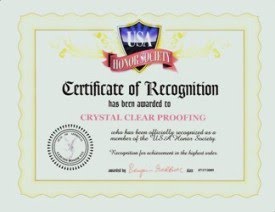
There are countless grammar rules and writing guidelines; below are eight easy rules to help you write effectively.
Rule 1. Use concrete rather than vague language.
Examples:
Vague: The weather was of an extreme nature on the west coast.
Concrete: California had very cold weather last week.
Rule 2. Use active voice whenever possible. Active voice means the subject is performing the verb.
Examples:
Active: Barry hit the ball.
Passive: The ball was hit.
Notice that the responsible party may not even appear when using passive voice.
Rule 3. Avoid overusing there is, there are, it is, it was, and so on.
Example: There is a case of meningitis that was reported in the newspaper.
Correction: A case of meningitis was reported in the newspaper.
Even Better: The newspaper reported a case of meningitis. (Active voice)
Example: It is important to signal before making a left turn.
Correction: Signaling before making a left turn is important.
OR
Signaling before a left turn is important.
OR
You should signal before making a left turn. (Active voice)
Example: There are some revisions which must be made.
Correction: Some revisions must be made.
Even Better: Please make some revisions. (Active voice)
Rule 4. To avoid confusion, don't use two negatives to make a positive.
Incorrect: He is not unwilling to help.
Correct: He is willing to help.
Rule 5. Use similar grammatical form when offering several ideas. This is called parallel construction.
Correct: You should check your spelling, grammar, and punctuation.
Incorrect: You should check your spelling, grammar and punctuating.
Rule 6. If you start a sentence with an action, place the actor immediately after or you will have created the infamous dangling modifier.
Incorrect: While walking across the street, the bus hit her.
Correct: While walking across the street, she was hit by a bus.
OR
She was hit by a bus while walking across the street.
Rule 7. Place modifiers near the words they modify.
Incorrect: I have some pound cake Mollie packed in my lunch bag.
Correct: In my lunch bag, I have some pound cake that Mollie baked.
Rule 8. A sentence fragment occurs when you have only a phrase or weak clause but are missing a strong clause.
Example of Sentence Fragment: After the show ended.
Example of Sentence: After the show ended, we had coffee.
Source: Blue Book of Grammar

































































Examples make it so much more clear!
ReplyDeleteI'm working on all of those!
ReplyDeleteDiane: I'm glad the examples helped!
ReplyDeleteAlex: Good for you! There certainly seems to be a lot to remember, doesn't there?
I think this is one of my favorite rules post yet. So helpful!! May have to post this one on my desk too, I know I'll get one of those flip book easels so I can have all your post handy and in my face to remind me. I need that,you are an editor extroadinaire!!! Love ya!!
ReplyDeleteGreat tips as always. Very helpful.
ReplyDeleteGood stuff. Have you noticed an increase in authors using fragments in the novels? The last five (maybe more) books had fragments. Is this becoming a trend or is it just something the author and editors aren't catching.
ReplyDeleteChris: Thanks for such high accolades! Love you too, my friend! ♥
ReplyDeleteMason: So glad you find the tips helpful!
Karen: That's my goal, is to take some of the *misery* out of grammar! LOL! And, your recent journey and your posts have been very helpful to me. Thank you for sharing.
Southpaw: I think it's a little of both. In my opinion, proper grammar is slipping in fictional work; no doubt because we don't speak proper English and we read and write like we speak. I think grammar is better retained in journalistic and non-fiction writing.
ReplyDeleteI believe much of it is the authors and editors too. There are ways to restructure to prevent fragments, which I will always attempt to do. Perhaps others don't?
Great observation and comment!
Another fine lesson, Crystal on some of the finer points of good prose. Got this one saved, too.
ReplyDeleteMarvin D Wilson
Good reminders. Thanks.
ReplyDeleteThanks Marvin and Carol!
ReplyDeleteAnd another of your posts goes into the 'keep' file. Bless you, my dear, for making it all so Crystal Clear!
ReplyDeleteI wish I could think or remember all this lesson when writing. Great stuff Crystal. Since I can't remember it all though, guess I still need an editor. Hmmm. Wonder who that could be. Thanks again for a great job.
ReplyDeleteElspeth: It's so rewarding to learn that a post is Crystal Clear to others. Thank you.
ReplyDeleteBob: Great to have you stop by! And you are so welcome! You're a pleasure to work with!
Thanks Crystal! I think you can avoid many mistakes by using active voice. With AV, it's easier to spot something that sounds wrong.
ReplyDeleteI have to watch out for #6. I once created an answering machine that gave neck massages.
ReplyDeleteI owe a lot to my high school English teacher. Although we wrote primarily expository essays, not fiction, his lessons still serve me well. One of his cryptic notes on a paper was SWYM -- which meant Say What You Mean.
You have a Sunshine award at my blog today!
ReplyDeleteI love the examples - they make it so much easier to remember these rules!
ReplyDeleteOh, man, I wish I could send this to all the writers I worked with and trained over the years at TV stations! You rock, Crystal!
ReplyDeleteMichele
SouthernCityMysteries